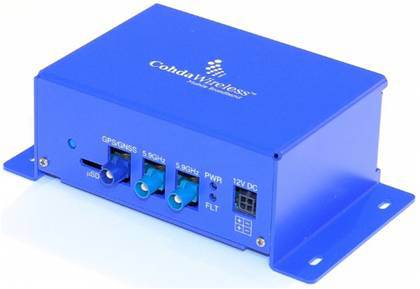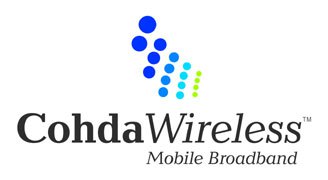Cohda Wireless is a cooperative ITS (Intelligent Transport Systems) manufacturer founded in 2004. The initial goal of Cohda Wireless was to make all cities Wi-Fi enabled and provide free Wi-Fi to everyone within those municipalities. As that vision changed, Cohda turned to the growing market of driverless and connected vehicle technology. Today Cohda Wireless specializes in the production of dedicated short range communications (DSRC) radios used for V2V and V2I communications. DSRC radios can be used to send and receive information concerning the speed, direction and location of a car using Wi-Fi. The DSRC radios made by Cohda Wireless are small, low cost IEEE 802.11P compliant radios designed for large scale trials. These radios have been known for their advanced performance in mobile and multipath communications, specifically with respect to signals bouncing off of nearby buildings. Physically, these radios are built to survive harsh outdoor conditions making them useful for both V2V as well as V2I communications because they can be implemented in road side infrastructures.

Cohda Wireless MK4a
Cohda Wireless’ claim to fame in the connected vehicle industry has been its work with the University of Michigan on a safety pilot in Ann Arbor. This safety pilot includes 2,800 cars that have been deployed with DSRC radios capable of many connected vehicle features such as forward collision warning and curve speed warning. Moreover, the pilot shows initiative by the U.S. to move forward from the R&D stage of connected vehicle technology to more advanced development.
Another less known project that Cohda Wireless is involved in is V2I testing using the San Francisco metropolitan bus system. Within San Francisco, 1,500 of the on board units have been installed in public buses and roadside units set up at various intersections. The on board units communicate with the roadside units letting them know the buses are near. The roadside units’ response is to change the traffic lights, giving the buses priority. When the buses return to the bus yard at the end of the day the data from these interactions is downloaded and analyzed.
Cohda Wireless was founded in 2004 by a group of highly regarded research scientists working at the University of South Australia’s Institute for Telecommunications Research.
- Dr. Paul Alexander Chief Technology Officer - Paul Alexander is an internationally recognized researcher in the advanced signal processing space and is one of the inventors of the technology being commercialized by Cohda Wireless.
- Prof. Alex Grant Technical & Research Advisor - Alex Grant is an internationally recognized researcher in advanced signal processing and information theory. He is the youngest professorial appointment at the University of South Australia.
- Prof. Lars Rasmussen Technical & Research Advisor - Lars Rasmussen is a Research Professor of Telecommunications at the Institute for Telecommunications Research at the University of South Australia where he has been the leader of the Communications Signal Processing group since his arrival in February 2002.
Cohda’s world-class team of scientists and engineers has progressed though the completion of prototype Cooperative-ITS systems, to designing and selling real world products with a compelling advantage. Cohda Wireless has secured revenues in the emerging Cooperative-ITS market through the sales of three generations of its on-board and road-side equipment.
The efforts of Cohda Wireless are helping aid the advancements in wireless communications and bridge the gap to a world of autonomous and connected vehicles.

